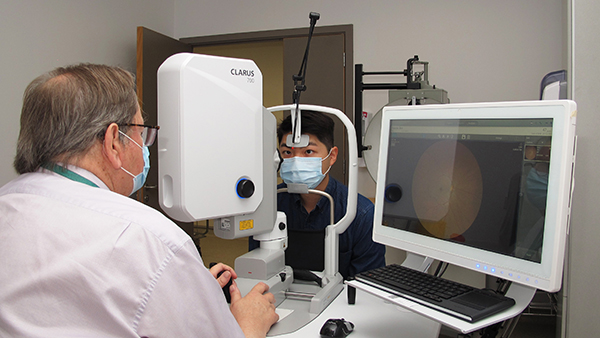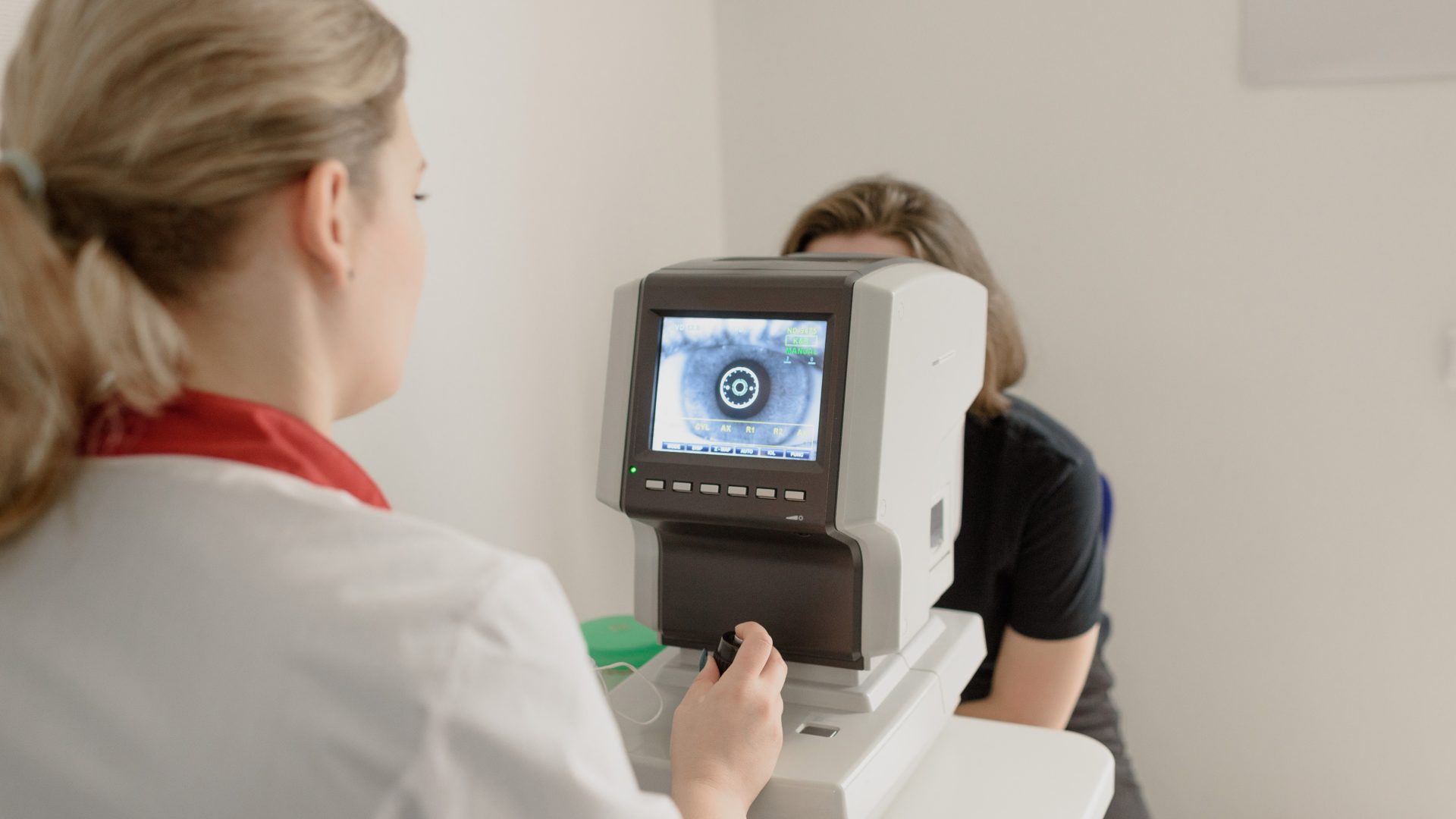Time-consuming appointments
Ophthalmologists – specialists in eye diseases – use retinal imaging equipment to take a detailed look inside patients’ eyes. As well as monitoring the general health of the eyes, these devices can help to diagnose conditions. This includes diabetic eye disease, macular degeneration, glaucoma and retinoblastoma – a type of eye cancer affecting children.
The equipment previously used at The Royal London Hospital required a large number of photos to be taken from different angles. It also relied on patients moving their eyes as requested. Appointments were time-consuming and challenging for some patients, especially children.
Faster treatment times
The new “fundus camera” takes ultrawide-field images of the entire retina in a matter of seconds. The photos are better quality and higher resolution. This means clinicians can better see changes over time and treatment can be implemented sooner.
Previously, each image was assessed in real time, prolonging the patient’s visit. But now patients can go straight home, allowing the ophthalmologist to review the photos at a time convenient to them. The results can then be shared over video or telephone appointments.
"The COVID-19 pandemic has changed everything in medicine as clinicians look for new ways of providing the same standard of care without putting staff and patients at risk."
Neil Finer, Ophthalmology Consultant
Improved safety for staff and patients
Although the grant was applied for before the Covid-19 pandemic hit, the equipment brings advantages in the wake of the crisis.
Ophthalmologists see many patients each day, and traditional retinal examinations have required prolonged close face-to-face contact. In the current environment, this increases the risk of Covid-19 transmission between patients and staff. The new camera reduces or eliminates close exposure time and shortens the patient’s visit, improving safety for staff and patients.
The camera will also be used to train junior doctors and nurses to help them to broaden their diagnostic skills. It will support education at regional, national and international meetings due to the exceptional image quality. This will enhance The Royal London Hospital ophthalmology department’s profile in teaching and research.
State-of-the-art equipment
Ophthalmology Consultant and project lead Neil Finer says: “This started as an initiative to provide the highest quality of care to our patients. The Covid-19 pandemic has changed everything in medicine as clinicians look for new ways of providing the same standard of care without putting staff and patients at risk.
“We feel extremely privileged and very grateful that we can tick all these boxes with the generous support of Barts Charity. Without the charity’s assistance, we could not have met the urgent challenges eye departments across the country now face.”
Support healthcare like this
Donate



